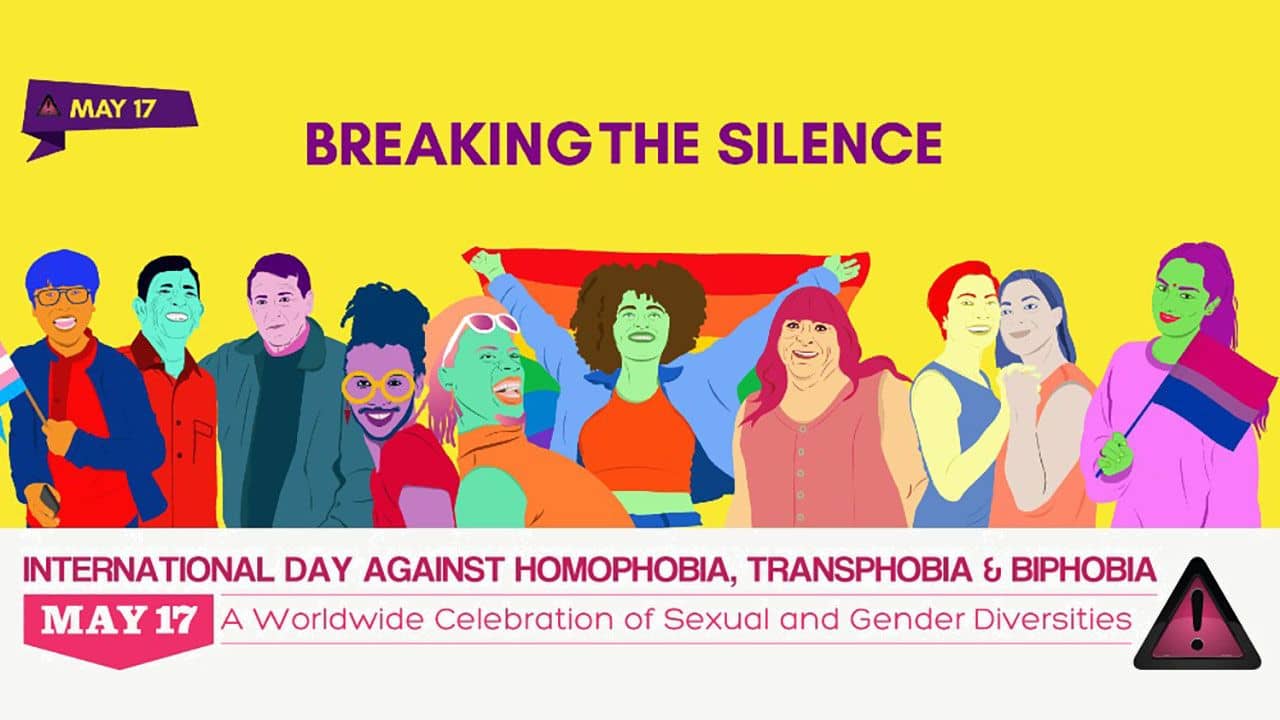
Every May 17 the International Day against Homophobia, Biphobia, Intersexism and Transphobia (IDAHOBIT) is commemorated to make visible and denounce the violence against lesbian, gay, bisexual, trans and intersex people (LGBTI) and fight against the hatred and discrimination suffered by LGBTI people and all other people with diverse sexual orientations, gender identities or expressions and sex characteristics.
This year the chosen theme is “Breaking the silence”. For many LGBTI people the reality they live remains hidden from their families, from their friends, in their work or social, cultural, political and educational spaces, for fear of stigma and rejection. May 17 is an opportunity to break this silence – for LGBTI people who can raise their voices, with the support of allied people and organizations, and take the space that is rightfully theirs, because their experiences and lived realities are important and their needs constitute rights. It is also an opportunity for those LGBTI people who cannot speak to listen to the sound of hope and solidarity.
Parliamentarians for Global Action (PGA) and the International Association of Lesbians, Gays, Bisexuals, Trans and Intersex for Latin America and the Caribbean (ILGALAC) join the IDAHOBIT commemoration adding our voices to the global choir that, facing the complicit silence of stigma, urges for the rights and inclusion of LGBTI people everywhere.
In these difficult times of the coronavirus, it is more important and urgent than ever to break the silence that makes people with diverse sexual orientations, gender identities or expressions and sex characteristics invisible and marginalized. LGBTI people are especially vulnerable to the pandemic – in many cases, discrimination, poverty, social exclusion or informal work make their situation even more difficult, both in Latin America and the Caribbean, and in the rest of the world.
In this context, the stigma against LGBTI people becomes an aggravating factor, exposing historical denials and violations of their human rights, inequity in the exercise of these rights, lack of access to comprehensive health and other essential services, barriers and prejudices that promote lack of inclusion and security, silence in response to fear and rejection and the repercussions in the form of harassment, blackmail or other hostile reactions. In the global pandemic situation that we live in, it is vital that there is equal access to the healthcare system, because we must take care of each other by showing solidarity among all people, without any discrimination or exclusion.
Therefore, as recommended by the Organization of American States in a recent practical guide to inclusive and rights-based responses, it is essential that the current health crisis is addressed by parliament and other public authorities with attention to the specific needs of LGBTI people, providing them with relevant information with an intersectional perspective, remote support through telephone advice lines or other means and direct assistance to guarantee the right to food and the right to health, with special attention to older people, persons with HIV, trans persons, migrants and LGBTI children and adolescents exposed to situations of domestic violence.
In this time of the coronavirus, let’s break the silence about the multiple discriminations that LGBTI people face and let’s help each other. Let us show gratitude to the people who provide medical care and carry out other essential work for the benefit of society, protect the most marginalized and vulnerable members of our communities and always respond to the challenges that surround us with humanity and solidarity, to overcome this crisis as soon as possible and with maximum social cohesion, building fairer and more egalitarian societies.

